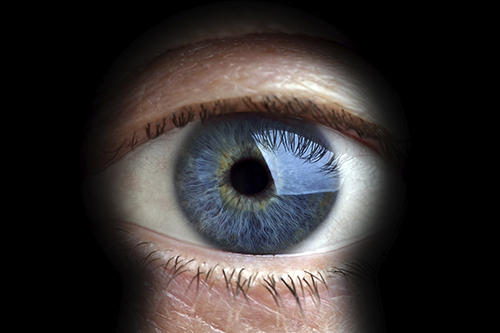Chapter 1
Privacy Through the Ages

In the 11th century, defending England from possible invasion by Scandinavia meant having the funds to maintain a robust army. So in 1086, William the Conqueror undertook an ambitious survey of taxpayers across the land.
One observer noted, “There was no single hide nor a yard of land, nor indeed one ox nor one cow nor one pig which was left out.”[1] The epic scale of the endeavor would see it compared to the biblical Judgment Day, or Doomsday, resulting in a sheepskin text composed in black and red ink known as the Domesday Book.
It seems governments of various stripes have attempted through history to monitor citizens as a means of enriching the treasury or detecting signs of dissent.
The methods of state control exercised by totalitarian regimes are depressingly familiar: Widespread use of informants, pervasive electronic surveillance, a lack of due process, and arbitrary detention.
In his seminal 1984, George Orwell describes a rigidly controlled society under the ever-watchful eye of Big Brother — one in which omnipresent telescreens monitor citizens and the Thought Police investigate suspected disloyalty. The novel, published in 1949, seemed to anticipate the surveillance states of the Communist Bloc typified by the East German Stasi, which turned neighbor against neighbor in cultivating a vast web of informants.
Though western nations avoided excesses on this scale, the intelligence services of Britain, Canada, and the United States spied on a wide array of citizens who dared question the Cold War political orthodoxy, amassing many thousands of files.
International agreements — including the European Convention on Human Rights and the International Covenant on Civil and Political Rights of the United Nations — began to entrench privacy guarantees. At last count, at least 99 countries have enacted privacy laws.[2]
In Canada, privacy is a quasi-constitutional right enshrined in the Privacy Act, governing federal institutions, and the Personal Information Protection and Electronic Documents Act, which covers the private sector in concert with similar provincial laws.
A hallmark of the Canadian system is the oversight afforded by the federal privacy commissioner and provincial counterparts, who enforce the laws, serve as ombudsmen for citizens with complaints, and play a watchdog role against invasive practices.
In the United States, the Privacy Act governs the collection and use of personal information in the federal government sphere, while the Federal Trade Commission polices the abuse of private data affecting consumers.
Former US spy contractor Edward Snowden’s revelations about widespread surveillance of online communication have reverberated in recent years, sparking an international conversation on digital privacy.[3]
In the 21st century, the struggle for privacy is waged not just with governments and law-enforcement agencies but with commercial enterprises that gather, sift, and sell personal data — often without our knowledge but in many cases with our full consent.
The state has a monopoly on a wide range of services and programs that can only be obtained through government, not to mention the ability to restrict or take away our liberty through incarceration, notes Vincent Gogolek, Executive Director of the British Columbia Freedom of Information and Privacy Association.
This is not to minimize the role of the private sector, which has access to a growing amount of our personal information, Gogolek adds. “But there is increasing convergence between the public and private sectors in terms of information sharing, and also with the delivery of public services through private-sector partners.”
University of Victoria Political Scientist Colin Bennett goes further. “I don’t think it is possible to tell the difference between the public and private sectors anymore. Governments use the data of the corporate sector for public purposes, and vice versa. In that sense, the Big Brother metaphor is not that useful because the notion of ‘the state’ has radically changed in the last 30 to 40 years. We need theories of surveillance that go beyond Big Brother and which resonate with the real risks and concerns of the general public.”
Against the backdrop of dizzying technological advances, those who wish to minimize their digital footprint find a complex dynamic.
